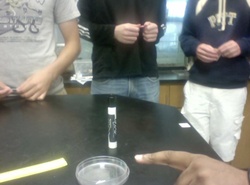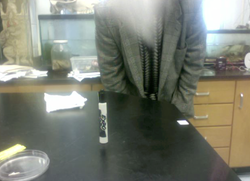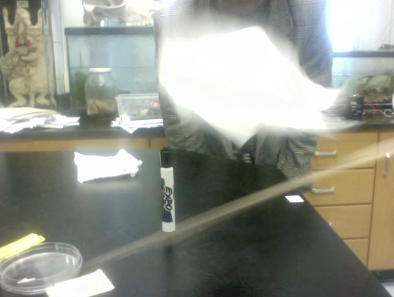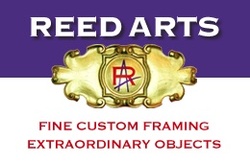Grandview Heights High School - The Nature Of Time Experiment
ABOUT the VIDEO
About the PHYSICS
BEHIND THE SCENES - BEXLEY
Physics In Trouble
HOW DID THEY DO IT?
The Worm in the Wormhole Time Machine
Bexley Photo Gallery
2008 Innovation Award Nominees
Local Business Support
The_Problem
Marshall Barnes Brings The Reality Of Fringe to Life
National Lab Day
IS A REAL MASSIVE DYNAMIC POSSIBLE?
Tech Companies Support National Lab Day
#1 NLDScientist
Bettering Our Schools?
NLDHubble
NLD Grandview Heights
NLD Light Refraction
Grandview Heights High School and the Reality of Time
Data Analysis at Summit Academy
The Nature of Time Experiment
USASEF Gallery
ADVANCED CONCEPT ADVENTURES
NLD at AAAS
The "Fringe" Of Science
IS ANY OF THIS REALLY "REAL"?
A BRIEF HISTORY OF FRINGE SCIENCE
ON THE REAL FRINGE
Marshall Barnes, R&D Eng = The Best In STEM
The Oppenheimer Strain
WHAT'S TO COME IN THE REAL FRINGE
Where It All Began
Marshall Barnes at the USASEF
Business STEM Support
Critical Thinking At Bexley
Press
Press Room 2
Press Room 3
D.C. TIme Party
Mars Society Conference
Education Visionary
Grandview Heights and the Oppenheimer Strain
Photo
THE UNIVERSE AS "IT'S OWN MOTHER"
Mars Society Conference In Grapevine, TX
Time Runs Backwards
Marcon 2012
OSU Wexner Center Math and Science Club Beats Hawking!
Time Machine Prototype At Grandview Heights High School
STEPHEN HAWKING'S FEEDBACK MISTAKE
14th Annual Mars Conference Road Trip SPonsored by GreyHound
Proving How Time Is Real
11:39:34

Marshall wanted to show how time is a real dimension along with space. It was Einstein's theory that 3 dimensions of space, along with 1 dimension of time, form the space-time continuum, but what time exactly is, has befuddled and confounded philosophers and physicists for centuries.
In order for Marshall to show a time dimension he had to figure out a way to see it. Physicists look for things that may be unseen or invisible by looking for the effects that they may cause that would indicate their presence. For example, stars moving in strange orbits usually indicate their being influenced by the gravitational field of a large unseen object which usually turns out to be a black hole. The black hole is invisible as nothing has come close enough yet for it to start eating and forming an accretion disc, which is how black holes are usually "seen", but the unusual orbit of the stars is the giveaway. Likewise, Marshall surmised that if space is where objects are and time is where events take place, then there should be a correlation between an object that is too big to fit in a space and an object that is too fast to fit in a slice of time.
What would an object, too fast to fit in a slice of time, look like? Like an object that is too big to fit in a room would only be partially seen by a person in the room (imagine a couch or ladder that is part way in and part way out), an object moving too fast to fit in a slice of time would be only partially seen and not clear like an object that wasn't moving too fast. The odd thing is that to fit that fast moving object, and all the others into the same slice of time, you don't need more time, you need less. The time dimension works on the thinnest slices. If the slice is too big, something moving fast will not be captured, it will only partially show-up or maybe not at all. The perfect way to show this was with a video camera and the analysis of still images from it.
By having several Grandview students toss, drop and throw objects, like sugar packets, in front of the camera, Marshall was able to capture exactly what he expected. This is the first time that we know of where photography has been used to show how time operates as a dimension, which also agrees with Einstein's theory of relativity.
So what did the teachers and students think of all this? Teacher Jo Lee's comments below seem to indicate it was a great learning experience enjoyed by all!
"Mr. Barnes did an exceptional job engaging our students in the classroom. He challenged their ideas about time and made them use critical thinking skills to explore its behavior. He enticed them the first day with video and discussion and then challenged them the next day to explore and anticipate results of an experiment. Our students are very bright and most of them are college bound and love a challenge. They enjoy the opportunity to look at common everyday ideas from an abstract view point and think 'outside-of-the-box'. Many students commented after his visit that they really enjoyed his personality, enthusiasm, and presentation. Theoretical physics has a lot of aspects and can be really cumbersome and difficult to talk about in the classroom. Mr. Barnes made it fun and hands-on for the students (a difficult task considering the topic). Best of all, he made a real life connection for them with a complicated subject.
National Lab Day is a great initiative that provides our schools with a wonderful opportunity to explore current ideas and new perspectives. Teachers and scientists can connect via a website to explore common goals/interests. Our students had a quality experience with Mr. Barnes this year. He should be commended on his commitment to spread new ideas and his dedication to teach our students."
The experiment that Marshall conducted with the students is so original that not even the science TV show, Time Warp, which uses high speed photography to study movement, has realized that the same thing can be done to study time itself!






















